Filter by topic and date
IETF 113 Hackathon – Back in person!
- Charles Eckel IETF Hackathon Co-chair
19 Apr 2022
The IETF 113 Hackathon held 19-20 March 2022 in Vienna and online marked the return to in-person collaboration on running code related to Internet standards.
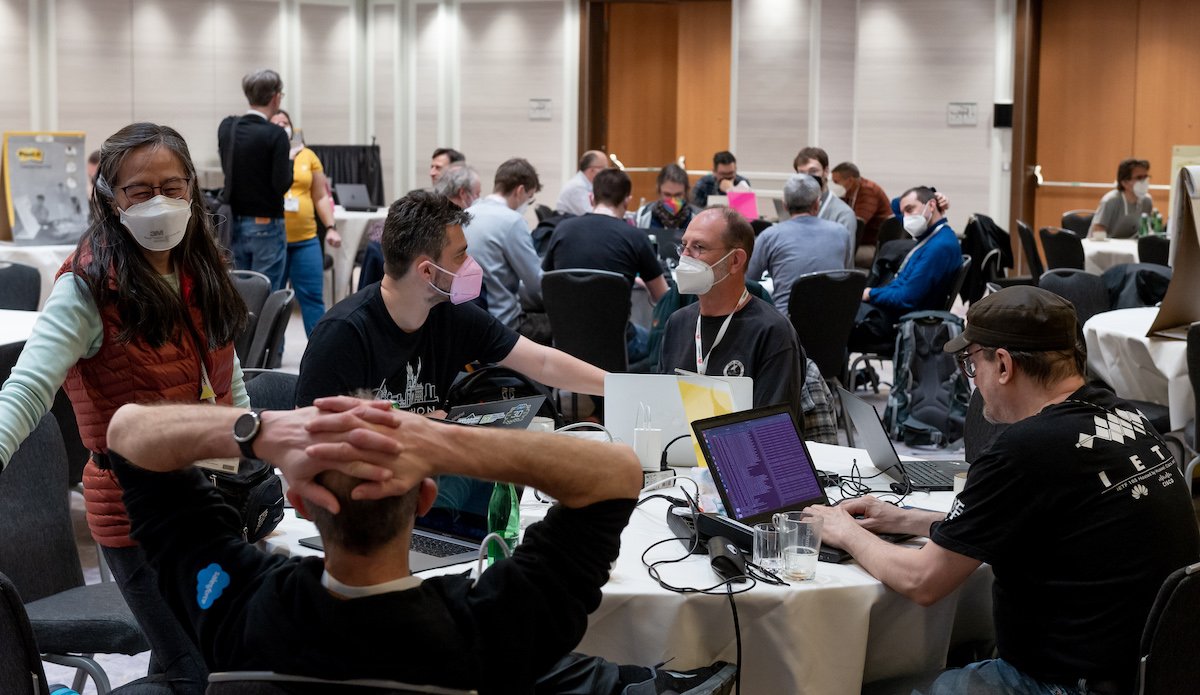
Improvements in our planning and procedures driven by the need to meet online during the COVID pandemic were combined for the first time with practices that evolved during years of experience with in-person Hackathons to enable a dynamic and rewarding experience for in person and remote participants alike.
As with IETF meetings and work on Internet standards in general, the IETF Hackathon is a collaborative event, not a competition. It is free and open to anyone, including those not attending the IETF meeting. Working together to find common understanding of proposals, concerns, and solutions that result in improvements to evolving Internet-Drafts (I-Ds) and already deployed protocols (as defined in RFCs) is as important as the development of code that implements or validates the correctness of the protocols these documents define.
IETF Hackathons attract participants with a wide range of backgrounds and interests. Many participants develop software, but subject matter experts who do not consider themselves developers are valuable participants as well. One of the greatest challenges with online only Hackathons was facilitating the mixing of people and ideas, and the sharing of knowledge and expertise that occurs so naturally when we come together in person. It was fantastic to add this valuable element back to the Hackathon. Running code created and improved at each Hackathon is valuable, but so are the exchange of ideas, the extension of human networks, and the building of new friendships, respect, and trust. Meeting in person for large periods of time made this all possible again.
Projects and Highlights
The IETF 113 Hackathon featured 22 projects and over 200 registered participants, with 134 signed up to participate in person and 101 indicating they would be remote. Of those participating in person, roughly half indicated this was their first in person meeting since the start of the pandemic. Thankfully, there was ample room for teams to congregate while respecting the preference of some participants to practice social distancing.
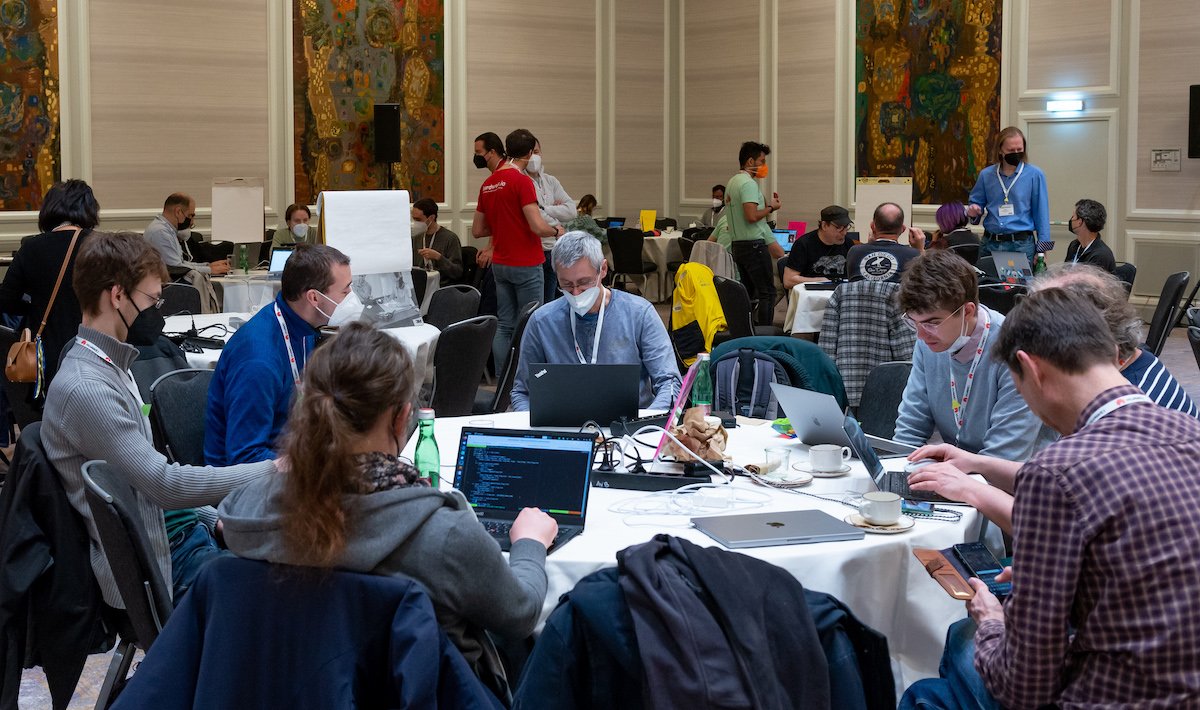
Everyone seemed genuinely happy to be together and to accommodate each other. Any awkward or stressful situations that arose with being in a large group setting for the first time in years were overcome with ease. One challenge I experienced more than I would have liked was not immediately recognizing someone who was wearing a mask and whose hair style or other physical features had changed since the last time we met in person.
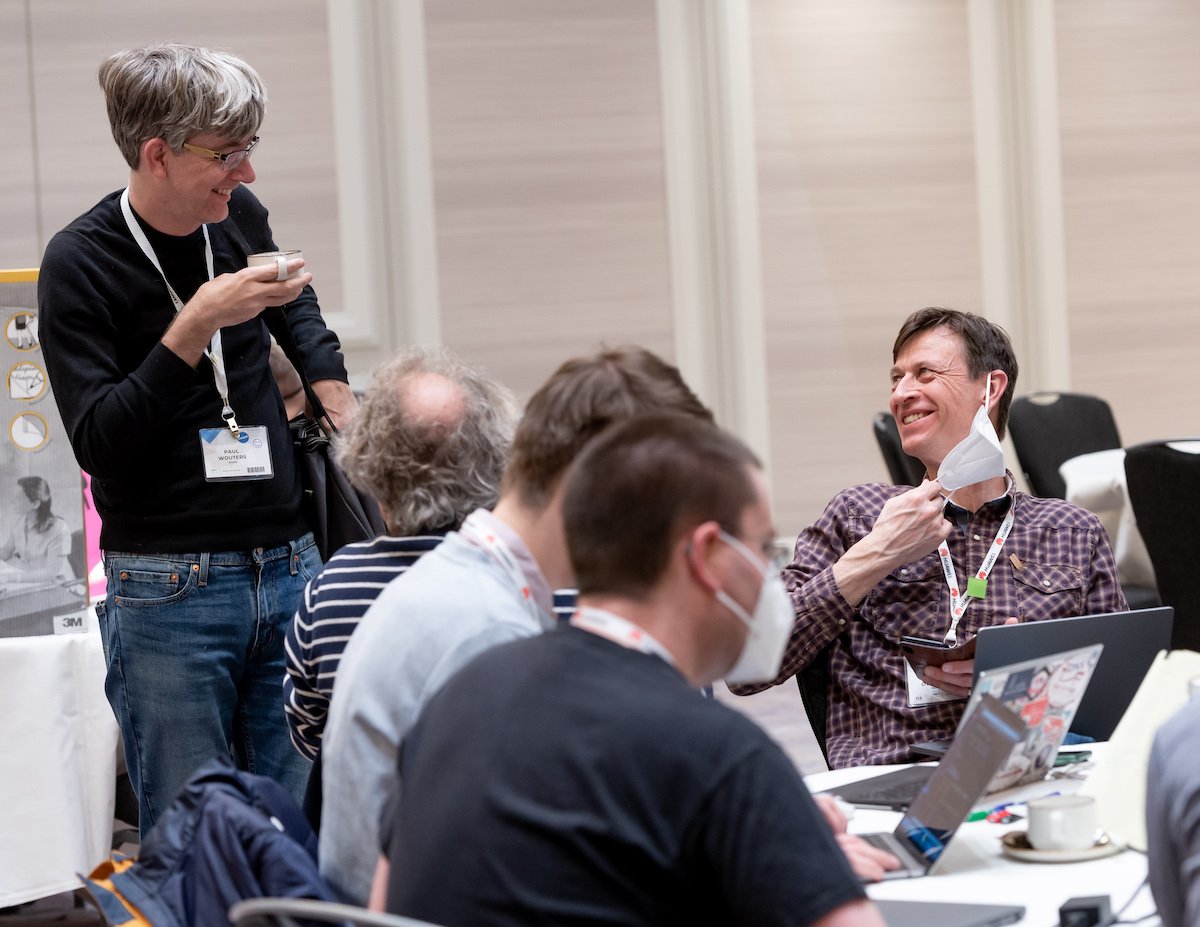
Hybrid Hackathon
From its inception in 2015, the IETF Hackathon has been held the weekend before each IETF meeting. The switch to online only resulted in a change in format and timing in which the Hackathon ran the entire work week prior to the IETF meeting. For IETF 113, the Hackathon agenda was compressed slightly, with the doors opening at 09:30 both Saturday and Sunday, closing at 21:00 Saturday, and the Hackathon ending at 16:00 Sunday. This timing aligned more closely with the overall IETF 113 meeting schedule and was intended to ease the pain for remote participants in various time zones.
The official kickoff was 10:30 Saturday and the closing ran from 14:00–16:00 Sunday. The kickoff and closing were run using Meetecho, bringing all participants together in the experience. The rest of the time was essentially free format, enabling teams to work as they liked and use whatever tools worked best for their participants. Some teams were entirely in person, others were completely remote, but several teams with an in-person presence benefited from contributions from remote participants. Gather was used successfully by some teams to connect those seated at physical tables in the IETF Hackathon room with those at virtual tables in the Hackathon space in Gather.
Project Results Presentations
The part of the Hackathon that proved to be the biggest challenge for our new and improved hybrid meeting technologies was the Hackathon closing. Despite struggles at times with audio levels and echo, results presentations were successfully shared by 17 teams. Of these, 12 were delivered locally and 5 were done remotely. As is often the case, the Hackathon was used to test and validate not only new IETF technology but also the local network and A/V setup at the meeting venue.
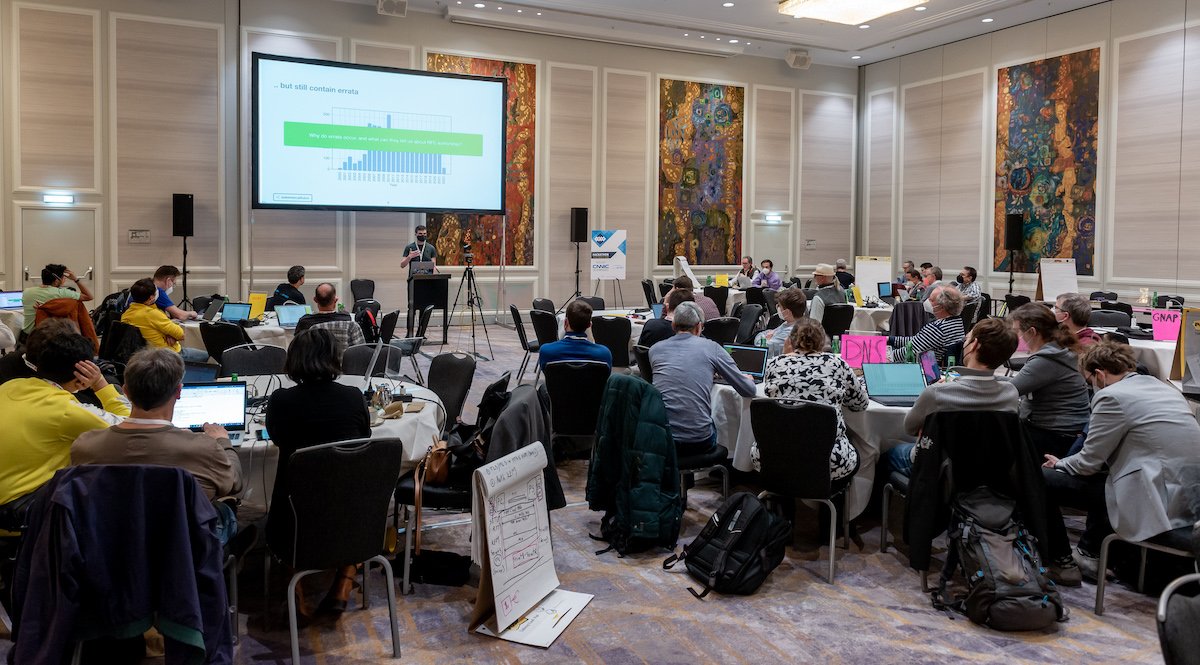
Jaehoon (Paul) Jeong stayed up extremely late to share the great progress made by a remote team in Busan, South Korea to incorporate the latest Interface to Network Security Functions (i2nsf) working group drafts into their codebase.
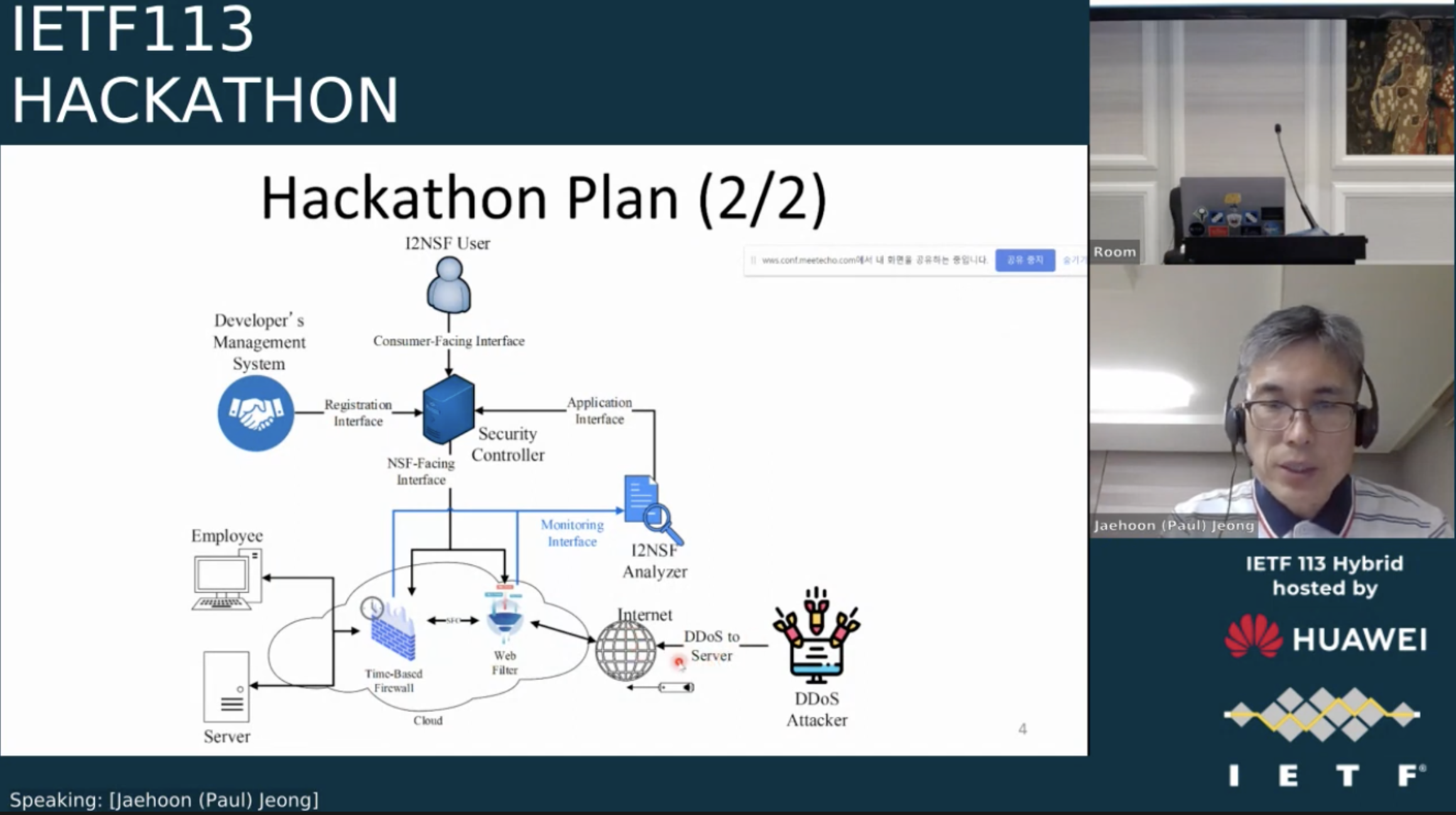
The DNS team worked on several topics, including extended DNS error codes, dry-run DNSSEC, DNS catalog zones, and DNS dynamic update over encrypted transport (QUIC/TLS). The final slide of their summary presentation summed things up nicely.
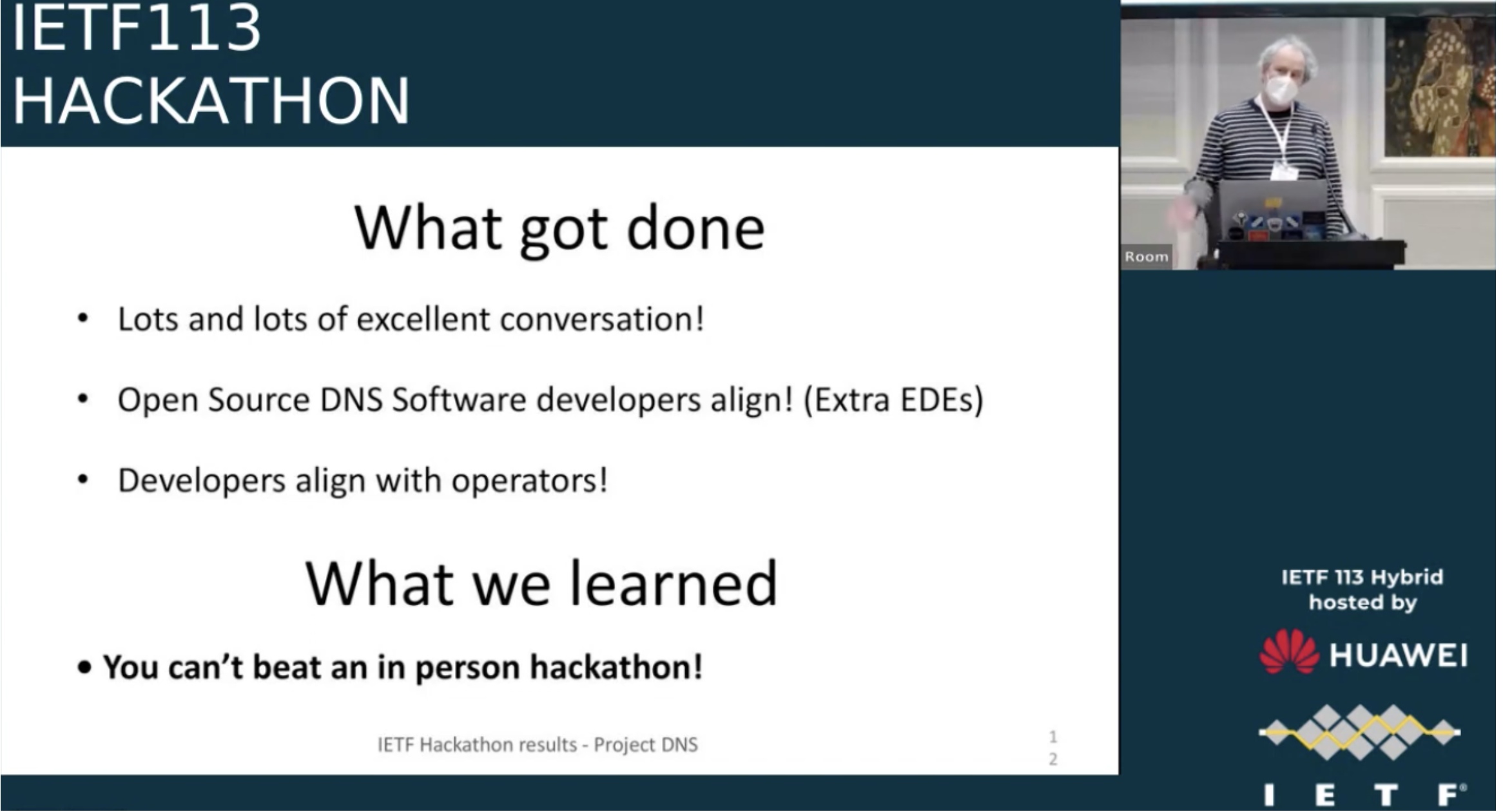
Jordi Ros Giralt, who led the ALTO team, had this to share.
'In the spirit of "running code", the Hackathon has been instrumental to the ALTO WG effort in providing the right framework to bring together the ALTO community on the goal of developing common southbound and northbound APIs that will work across a significant variety of networks and applications. Moreover, we are not considering this a one-off event for the ALTO effort, but rather a mid-to-long term effort, as we intend to use future IETF hackathons as checkpoints in our roadmap to demonstrate the latest standard features and test protocol interoperability. Looking forward to participating and seeing you in Philadelphia!'
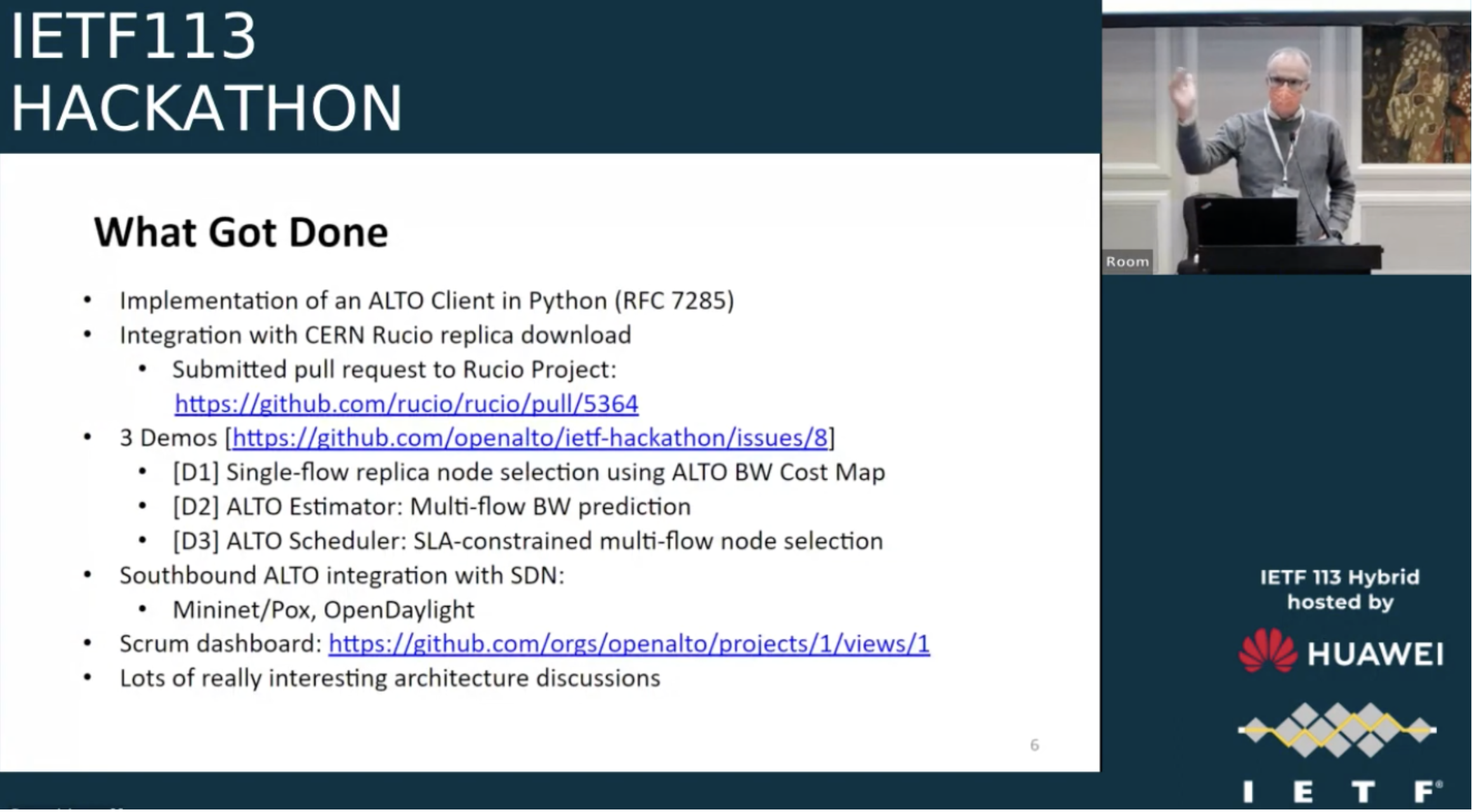
And David M. Oliver summarized the work of this team on HTTP transport authentication as follows.
HTTP Transport Authentication is designed for use with the HTTP CONNECT method, authenticating the connection rather than its individual transactions, suitable for use with newer applications of HTTP that multiplex non-HTTP traffic (distinct from HTTP's request/response pattern) over a single connection. The proposed design "fails silently" (leaks no information to an attacker) to discourage active probing.
We picked up dormant work originally done by a teammate, got it running in a modern build environment and on the newest Google Conscrypt stack (TLS for Java/Android), verified its function and created a public open source repository. We verified that the TLS keying material exporter used by HTTP Transport Authentication is available to most programming languages, either directly or via library (Python, Go, Rust in addition to Google Chrome's Cronet).
We got good feedback from Hackathon participants as to the importance of this work, especially relevant in the current world political situation.
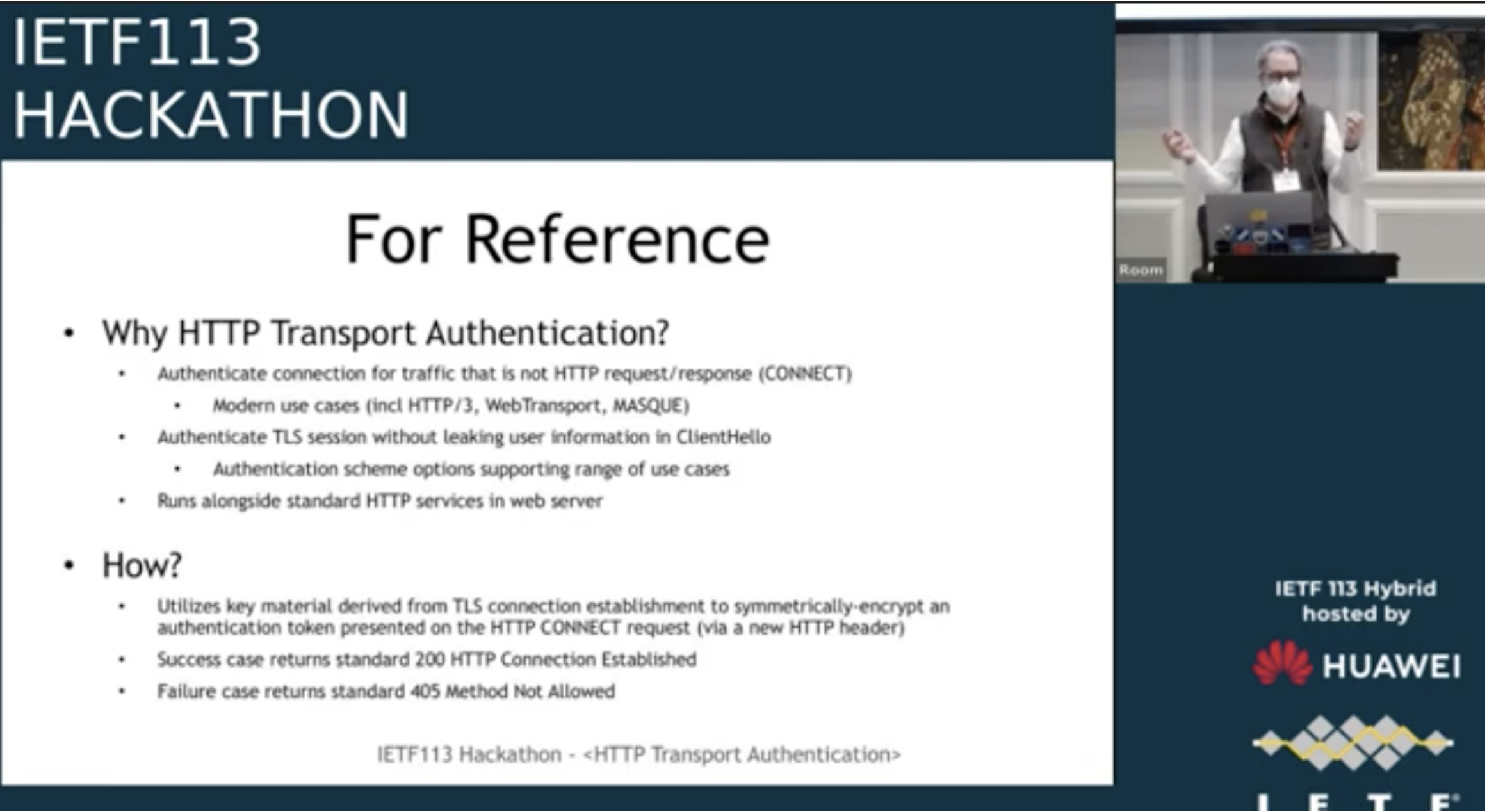
More information on these and all the other projects, including links to the code, is available on the IETF Hackathon wiki.
Thanks to CNNIC
On behalf of everyone who participated, I sincerely thank CNNIC for sponsoring the Hackathon. CNNIC sponsored the online only Hackathon at IETF 112 and stepped up again as a sponsor as we returned for our first in person Hackathon in over two years.
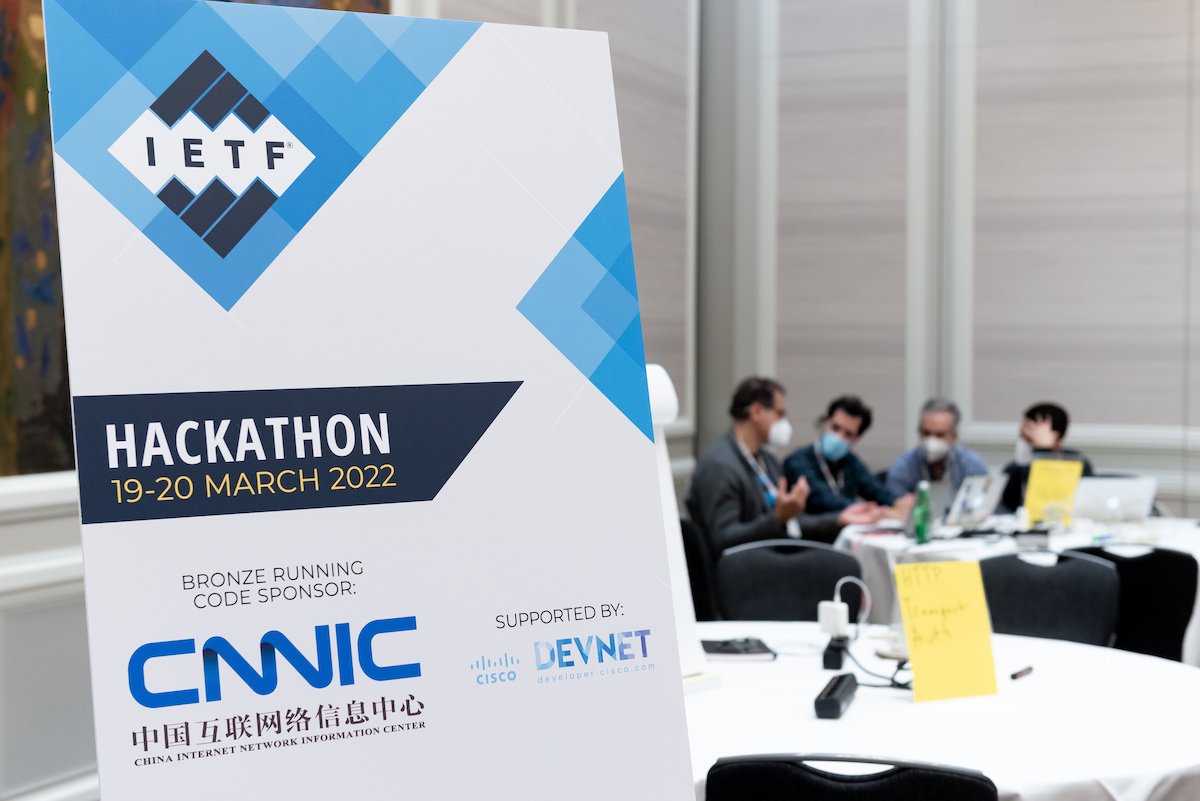
We greatly appreciate this sponsorship and welcome and encourage additional sponsors. By sponsoring the Hackathon, you help ensure it remains a free event accessible to everyone. More information is available online at IETF Running Code Sponsors.
Special thanks to the IETF Secretariat, NOC, LLC, Tools Team, Meetecho, and Gather developers for all their efforts to make IETF Hackathons possible and successful.
Next Hackathon
The IETF 113 Hackathon was an emotional return for the IETF community to collaborating in person on Internet standards and running code. For those who were able to participate in person, it demonstrated the personal and professional value of coming together to work on common goals. It also highlighted room for improvement in the way we deal with what appears to be the new normal of hybrid events and collaboration. We will use what we learned to make the next Hackathon even more rewarding for all participants.
The next IETF Hackathon will be at the start of IETF 114, July 23-24, in Philadelphia. Mark your calendars and subscribe to the Hackathon email list to get all the latest information.
All photos ©Stonehouse Photographic/ IETF Trust
See the IETF Hackathon photo gallery for more photos from the IETF Hackathon 19-20 March 2022.